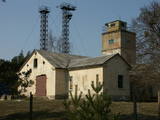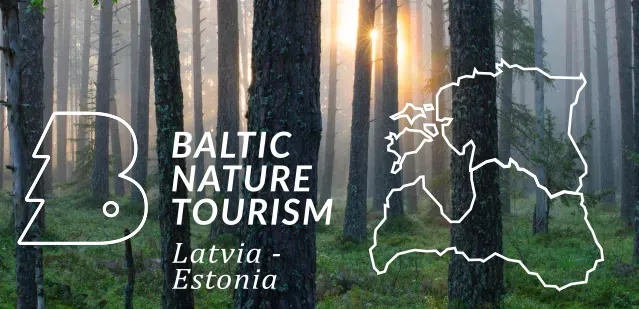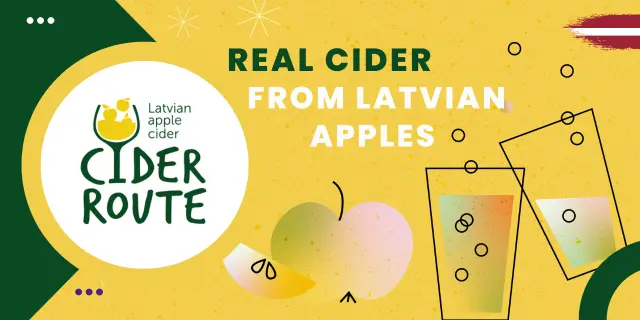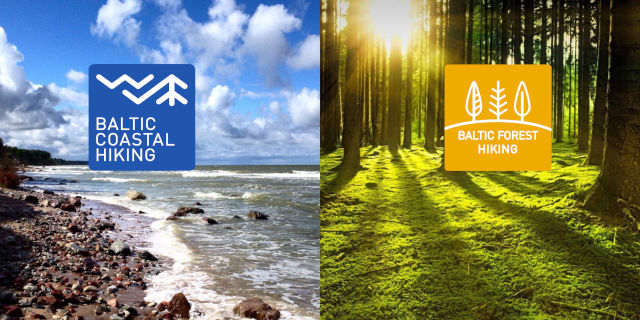Kolka parish and border guard cooperation
As the head of local government, I had a very good cooperation with the border guard. They were always very helpful. If, for example, a kid would get lost in a forest, I just needed to give a call to the commander of the <i>zastav <i/> (cordon), and he would immediately send border guard to <i>comb<i/> the woods until they found the kid. They never refused.
I come from Dundaga. I entered a medical school in Ventspils and was in Kolka for my training placement. I knew the director’s wife of the local fish factory, she was a relative of mine, and her name was Hilda. The director Morozov was a disabled veteran of the WWII. He talked me into working in the fish factory telling that medical people get low wages and make in one year as much money as a foreman in the fish factory would make in a month. I started to work in the factory. In the beginning, I was a brigade leader in the “tomato” line, and I worked there for four years. Then Uldis Andersons returned from the military, we got married and our son was born. When he was five, the head of the village council, Sergejs Ešentāls, was going to leave Kolka and suggested that I take his place. I was afraid in the beginning, but Sergejs persuaded me to try starting as a secretary. I worked for some months, then there were elections and I was elected for a provisional term. This “provisional” turned out to last for 25 years.
They gave me a „Moskvich” car because the village territory under my supervision was large – from Lielirbe to Roja. I could go wherever I wanted, just that I needed to have my passport with me. At that time, we all had our place of residence registered and written in our passports.
As the head of local government, I had a very good cooperation with the border guard. They were always very helpful. If, for example, a kid would get lost in a forest, I just needed to give a call to the commander of the zastav (cordon), and he would immediately send border guard to comb the woods until they found the kid. They never refused.
Certainly, very much depended on who was the commander. In my time, there were Karpov, Fedotov (twice in Kolka, sent to Ventspils in between), Opolev, Raschenko. The latter two were very understanding. There was intense rotation so that the officers would not get too friendly with the locals. We heard the news about Raschenko after he left Kolka. He was flying a helicopter, it crashed and the crew suffered badly. Zoja, his wife, was writing letters to me. I had arranged a job for her in the laboratory of the fishing artel “Brīvais zvejnieks”. She stopped writing after we received the news about the accident. This is a terrible story. Raschenko was very good-natured, friendly, got along well with the local people. Not all officer wives were working, but many of them worked in the canteen, in the nursery school.
Pluschenko worked in Ventspils and he often came to inspect the local staff. Once his car broke down and I took him to Ventspils. He gave some petrol for my car. We got along well. They offered a helpful had to us and we did the same.
On the other hand, the seaside was enclosed in barbed wires, people could not go swimming or walking when and where they wanted. There was only a narrow access to the sea opposite the local club. We talked to the military officers and explained that the local people have got used to the sea and they just want to go swimming. They enlarged the swimming zone almost to the cape and to the fishing piers from the other side. In evenings, the sand was harrowed, and in mornings, border guards were patrolling with dogs to check if there are no footprints to the sea. If they saw footprints, they immediately investigated who had walked, where and why. I was laughing and asked if they feared that someone would wade across the sea or were they afraid of themselves? They answered that this was the rule and they had to obey the orders.
However, if someone asked to go in a boat to the lighthouse, the border guards never refused.
When the border guard had some big celebration in Miķeļtornis village, they invited us from the village council, the head of the local collective farm and the local chief of militia. They were partying in the building of the former Lutheran church, which was turned into a club in soviet time. Local people took part in festivities.
The Lutheran church in Kolka was turned into a warehouse, old fish boxes were stored there. They wanted to make a warehouse also in the Orthodox church building, but people managed to prevent it. Many things from the church were taken to the museum in Talsi. Now they are returned to the church. Not the people from the border guard ordered to close churches. It was the high power.
I joined the communist party, then I got married and my son was born. My mother-in-law advised to christen my son and to get married in the Orthodox Church. We did it. The priest came to my home to hold the ceremony. I neither was called for investigation, nor scolded for it. Nobody reported on me. There was the Day of Border Guard. At the table, they talked about sacred things. When we discussed religion, they never said “boga net” (there is no God). They all agreed, so they believed in god.
I took part in the opening ceremony of the new zastav in 1981. In my speech, I said that all village people are happy that the border guards have now moved from the old wrecked house by the school into new, beautiful quarters. Now these buildings belong to the Latvian army.
Now and then the border guard thought that somebody must have trespassed the border. However, nothing was ever proved. Nobody really wanted to wade across the sea, people were disciplined.
We lived in restricted area. Not only entrance passes were important. At the village council, our main job was to write approvals or rejections for admittance. We had to find out what kind of a person it was who asked for a pass to visit the place. We received instructions from the regional government regarding persons who should not be admitted. Former convicts should not be let in. We had to ensure entrance to Kolka for the relatives of the local people. We issued our notifications and then the Passport Office checked them together with Security Office. If the person who wanted to come to Kolka did not have relatives here, we had to wait for approval “from above”, from the regional government. Friends, schoolmates, fellow-students and colleagues at work were admitted. Usually we did not reject. At the end, we are all Latvians and we supported one another.
Nobody ever told us how many people served in the military here. They were many, but I do not know exactly.
At times, the soldiers were marching through Kolka to the lake Zēņu. It was a big crowd, but nobody counted them. They had some training by the lake. There was a shooting range with targets between the Kolka and Mazirbe roads. It was the safest place for shooting, as people did not walk there. There was an interesting episode. One day I got many phone calls from the local fishermen telling that an aircraft had fallen into the sea right by the piers. I called to the commander of the zastav and asked if that was true. He replied “ja uznaju” (I’ll find out”). After a while he said that they do not know anything. But the fishermen had seen it in their own eyes. Augusts Zvirgzdiņš had seen it and Pavlov, the old fisherman, and others. Interrupting each other, they were telling how the aircraft came down and how the water boiled where it disappeared. Even kids had seen it. But the border guard hided it saying that nothing of the kind had happened. I asked the “big boss” Pluschevski from Ventspils when I met him, but he just kept silent without saying “yes” or “no”.
In my time, they were building the road from Ventspils to the river Lielirbe. The strojbat (construction battalion) was doing the job.
Many local girls got married to military men. Many women here have Latvian names and non-Latvian surnames, like Mačule (Lithuanian), Tonchev, Danilev (Russian). Many of these women came from old Liv families. One of the duties of the village council was to register marriages. Relatives of the soldiers were admitted to Kolka to attend the wedding with the consent of the Security Office.
They gave me a „Moskvich” car because the village territory under my supervision was large – from Lielirbe to Roja. I could go wherever I wanted, just that I needed to have my passport with me. At that time, we all had our place of residence registered and written in our passports.
As the head of local government, I had a very good cooperation with the border guard. They were always very helpful. If, for example, a kid would get lost in a forest, I just needed to give a call to the commander of the zastav (cordon), and he would immediately send border guard to comb the woods until they found the kid. They never refused.
Certainly, very much depended on who was the commander. In my time, there were Karpov, Fedotov (twice in Kolka, sent to Ventspils in between), Opolev, Raschenko. The latter two were very understanding. There was intense rotation so that the officers would not get too friendly with the locals. We heard the news about Raschenko after he left Kolka. He was flying a helicopter, it crashed and the crew suffered badly. Zoja, his wife, was writing letters to me. I had arranged a job for her in the laboratory of the fishing artel “Brīvais zvejnieks”. She stopped writing after we received the news about the accident. This is a terrible story. Raschenko was very good-natured, friendly, got along well with the local people. Not all officer wives were working, but many of them worked in the canteen, in the nursery school.
Pluschenko worked in Ventspils and he often came to inspect the local staff. Once his car broke down and I took him to Ventspils. He gave some petrol for my car. We got along well. They offered a helpful had to us and we did the same.
On the other hand, the seaside was enclosed in barbed wires, people could not go swimming or walking when and where they wanted. There was only a narrow access to the sea opposite the local club. We talked to the military officers and explained that the local people have got used to the sea and they just want to go swimming. They enlarged the swimming zone almost to the cape and to the fishing piers from the other side. In evenings, the sand was harrowed, and in mornings, border guards were patrolling with dogs to check if there are no footprints to the sea. If they saw footprints, they immediately investigated who had walked, where and why. I was laughing and asked if they feared that someone would wade across the sea or were they afraid of themselves? They answered that this was the rule and they had to obey the orders.
However, if someone asked to go in a boat to the lighthouse, the border guards never refused.
When the border guard had some big celebration in Miķeļtornis village, they invited us from the village council, the head of the local collective farm and the local chief of militia. They were partying in the building of the former Lutheran church, which was turned into a club in soviet time. Local people took part in festivities.
The Lutheran church in Kolka was turned into a warehouse, old fish boxes were stored there. They wanted to make a warehouse also in the Orthodox church building, but people managed to prevent it. Many things from the church were taken to the museum in Talsi. Now they are returned to the church. Not the people from the border guard ordered to close churches. It was the high power.
I joined the communist party, then I got married and my son was born. My mother-in-law advised to christen my son and to get married in the Orthodox Church. We did it. The priest came to my home to hold the ceremony. I neither was called for investigation, nor scolded for it. Nobody reported on me. There was the Day of Border Guard. At the table, they talked about sacred things. When we discussed religion, they never said “boga net” (there is no God). They all agreed, so they believed in god.
I took part in the opening ceremony of the new zastav in 1981. In my speech, I said that all village people are happy that the border guards have now moved from the old wrecked house by the school into new, beautiful quarters. Now these buildings belong to the Latvian army.
Now and then the border guard thought that somebody must have trespassed the border. However, nothing was ever proved. Nobody really wanted to wade across the sea, people were disciplined.
We lived in restricted area. Not only entrance passes were important. At the village council, our main job was to write approvals or rejections for admittance. We had to find out what kind of a person it was who asked for a pass to visit the place. We received instructions from the regional government regarding persons who should not be admitted. Former convicts should not be let in. We had to ensure entrance to Kolka for the relatives of the local people. We issued our notifications and then the Passport Office checked them together with Security Office. If the person who wanted to come to Kolka did not have relatives here, we had to wait for approval “from above”, from the regional government. Friends, schoolmates, fellow-students and colleagues at work were admitted. Usually we did not reject. At the end, we are all Latvians and we supported one another.
Nobody ever told us how many people served in the military here. They were many, but I do not know exactly.
At times, the soldiers were marching through Kolka to the lake Zēņu. It was a big crowd, but nobody counted them. They had some training by the lake. There was a shooting range with targets between the Kolka and Mazirbe roads. It was the safest place for shooting, as people did not walk there. There was an interesting episode. One day I got many phone calls from the local fishermen telling that an aircraft had fallen into the sea right by the piers. I called to the commander of the zastav and asked if that was true. He replied “ja uznaju” (I’ll find out”). After a while he said that they do not know anything. But the fishermen had seen it in their own eyes. Augusts Zvirgzdiņš had seen it and Pavlov, the old fisherman, and others. Interrupting each other, they were telling how the aircraft came down and how the water boiled where it disappeared. Even kids had seen it. But the border guard hided it saying that nothing of the kind had happened. I asked the “big boss” Pluschevski from Ventspils when I met him, but he just kept silent without saying “yes” or “no”.
In my time, they were building the road from Ventspils to the river Lielirbe. The strojbat (construction battalion) was doing the job.
Many local girls got married to military men. Many women here have Latvian names and non-Latvian surnames, like Mačule (Lithuanian), Tonchev, Danilev (Russian). Many of these women came from old Liv families. One of the duties of the village council was to register marriages. Relatives of the soldiers were admitted to Kolka to attend the wedding with the consent of the Security Office.
| Tourism objects involved in this story | ||
|---|---|---|
The Cape of Kolka is freely accessible to local residents and tourists today, but the border guard facility still serves its purposes and is not open to civilians. |
||









